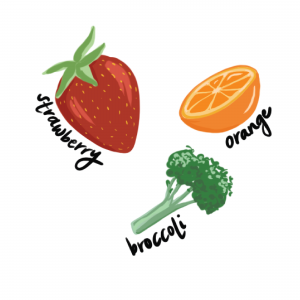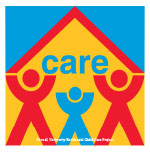PROGRAMS
GET INVOLVED
SUPPORT OUR MISSION

Across all ages and demographics, keeping the body nourished is necessary for proper development, which can last until early adulthood. For both children and young adults, some of which may be dealing with behavioral challenges, this is especially important. With many studies proving a strong connection between behavior and diet, the need for proper nutrition is stronger than ever.
Here are some tips to help keep youth nourished and functioning to the best of their abilities:

Snack Smarter
People have different ways of coping with the trauma in their lives, and some are unhealthier than others. One of these methods is stress eating, which is eating without hunger as a response to stress and/or trauma. Unfortunately, this unhealthy coping mechanism isn’t just reserved for adults and can affect children dealing with “early life stress” as young as four years old.
Enjoy some “comfort food” after a bad day isn’t necessarily troubling, but habitually consuming unhealthy foods to escape unfavorable feelings or circumstances is not a healthy or sustainable way to deal with things. In addition to therapy, an easy way to start implementing changes is to swap out the usual snacking foods with healthier choices.

Catch Some Zzzzs
It’s common knowledge that a good night’s sleep is necessary, but its value is often underestimated, especially for children and young adults who are most strongly affected by lack of sleep. Sleep deprivation is nothing to take lightly, as it can cause difficulty learning due to inattention, forgetfulness, lack of motivation, and irritability. For youth who already struggle with behavioral issues, or intellectual and developmental disabilities, sleep should be prioritized.
To aid with a restful night’s sleep, consuming natural teas with calming properties, like (chamomile or lavender), before bedtime and avoiding caffeinated beverages, like coffee and sodas, that can keep the body awake, interrupt natural sleep patterns, and cause sluggishness that negatively affects performance in school or at work are recommended.

Get a “Boost”
With the daily stresses of school and/or work, coupled with other challenging life circumstances, it’s easy to slip into a routine of eating cheap and convenient fast food. But, a regular diet of high cholesterol, high fructose food affects more than just weight – it can add to an already stressed lifestyle by failing to restore energy levels, which impacts one’s mood. Fortunately, there are some specific foods that can boost energy levels and, in turn, happiness.
Instead of consuming fast food that causes sluggishness, try consuming energy and mood boosting foods rich in Vitamin C, such as oranges, strawberries and broccoli. With more energy, kids and young adults can have an easier time paying attention at school and/or work and become less irritable while doing so.
These are just a few simple tips that can help keep kids and young adults healthy and functioning to their highest abilities.


